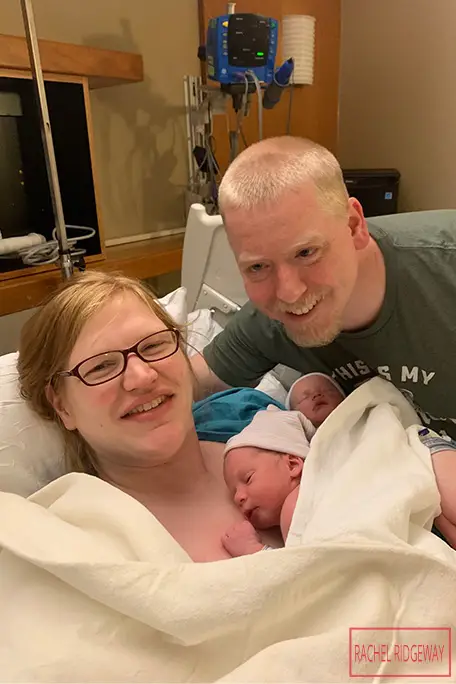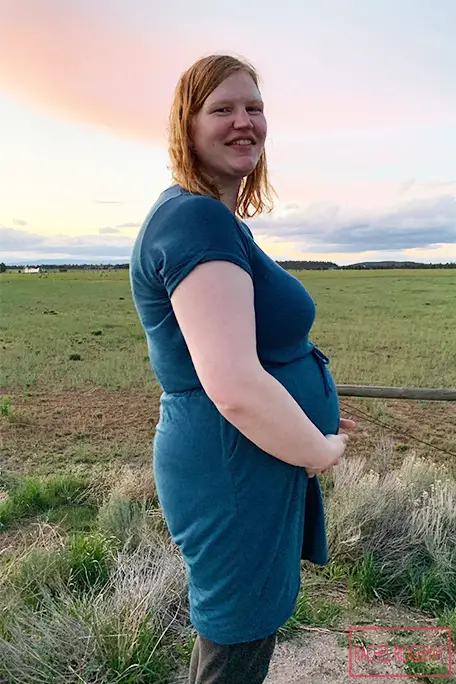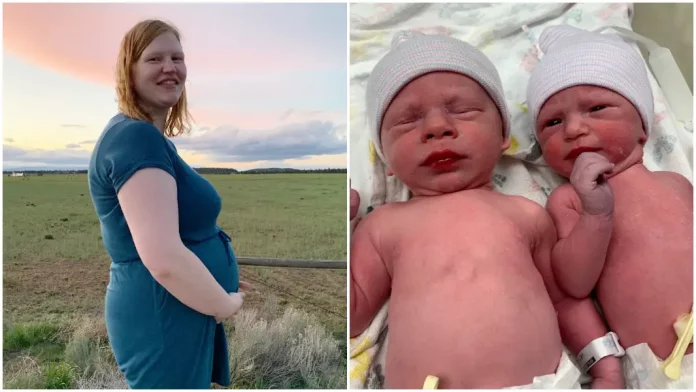It could be argued that three-month-old twins Lydia and Timothy Ridgeway are old souls.
That’s because the twins from Vancouver, Washington, USA, who arrived on 31 October 2022, were actually conceived almost three decades ago, earning them the record title for the oldest embryo used in a successful pregnancy.
The embryos were created for an anonymous married couple using in-vitro fertilisation.
The husband, who passed away before any of the embryos resulted in live births, was in his early 50s, and they used eggs from a 34-year-old donor.
For 15 years, the embryos were kept at a fertility lab on the US West Coast, where they sat cryopreserved in liquid nitrogen at -320 degrees F (-196 degrees C).
In 2007, the couple who created them selflessly made the decision to donate them to the National Embryo Donation Center in Knoxville, Tennessee, where they sat for another 14 years and 10 months, in hopes they would eventually bring another wishful couple happiness.
“The owner of the embryos wanted to give them a chance at life in another family,” said Mark Mellinger, Marketing and Development Director at the NEDC.

Looking to complete their family, Philip and Rachel Ridgeway visited the NEDC in hopes of adopting an embryo.
“God’s example of adoption is what inspired us to adopt.
The Bible states that God created adoption before the foundations of the world and has adopted sinners to be His children,” said Rachel and Philip Ridgeway.
“God has shown great love for undeserving sinners, how much more should we be able to love frozen children by adopting them and getting them out of the freezer.” – Rachel and Philip Ridgeway.
The Ridgeways first visited the NEDC for medical clearance prior to having access to the donor database.
After being medically cleared and having the database explained, they were given a log in and picked a primary donor as well as two back up donors.
The Ridgeways looked through information about the various donor parents and decided on three little embryos who had been sitting frozen for decades, although they didn’t have any photographs of the biological parents.
“We knew very little. Basic information about the parents, height, weight, etc., but none of it mattered to us,” said the Ridgeways.
“They, like the rest of the frozen children waiting to be adopted, were in need of a home. We did not know the sex of the babies until birth.”
So, the Ridgeways transferred the trio and fortunately, two implanted.
“It’s always challenging emotionally to realise that not all embryos survive the thaw, and of those that do, fewer than half will result in live births,” said Mark.
“Three embryos were transferred into Rachel. The likelihood of multiples was less than 20 per cent. – Mark Mellinger, Marketing and Development Director at the NEDC”
Aside from actually falling pregnant, there are additional struggles when adopting an embryo including financial, physical, and emotional challenges.
“Financial, because embryo adoption isn’t considered ‘adoption’ from a government view so there isn’t a lot of assistance available,” said the Ridgeways.
“Physical, because there are multiple medications required in a transfer cycle which include injections that may have side effects, and emotional because between medications, travel, and realising the possibility that the embryos transferred may not implant, you can anticipate a lot of potential ups and downs.”
There are also many logistical hurdles involved with embryo adoption.
“Patients must apply online, pass a home study, receive medical clearance here in Knoxville, scroll through our online database to become ‘matched’ with an embryo profile, and then return to Knoxville to have their frozen embryo transfer (FET) performed,” said Mark.

Although Rachel had gestational diabetes throughout her pregnancy with the twins, everything else went smoothly.
Rachel was also fortunate to have the support of her friends and family throughout the entire process, even having cousins who were also adopted through the NEDC.
“Like every child born into our family, dynamics changed after the birth of Lydia and Timothy,” said the Ridgeways.
“They bring us much joy and we couldn’t imagine life without them. They are dearly loved by our whole family and their siblings are thrilled to have them. – the Ridgeways”
The Ridgeways are elated that their twins hold the record title for the oldest embryo used in a successful pregnancy—a record previously held by Molly Gibson, born in 2020 from an embryo that had been frozen for nearly 27 years.
“May of 2022, Mark Mellinger from the NEDC contacted us,” said the Ridgeways.
“He informed us that our twins were going to be the world’s oldest embryos once they were born.”
Source: Guinness World Records







